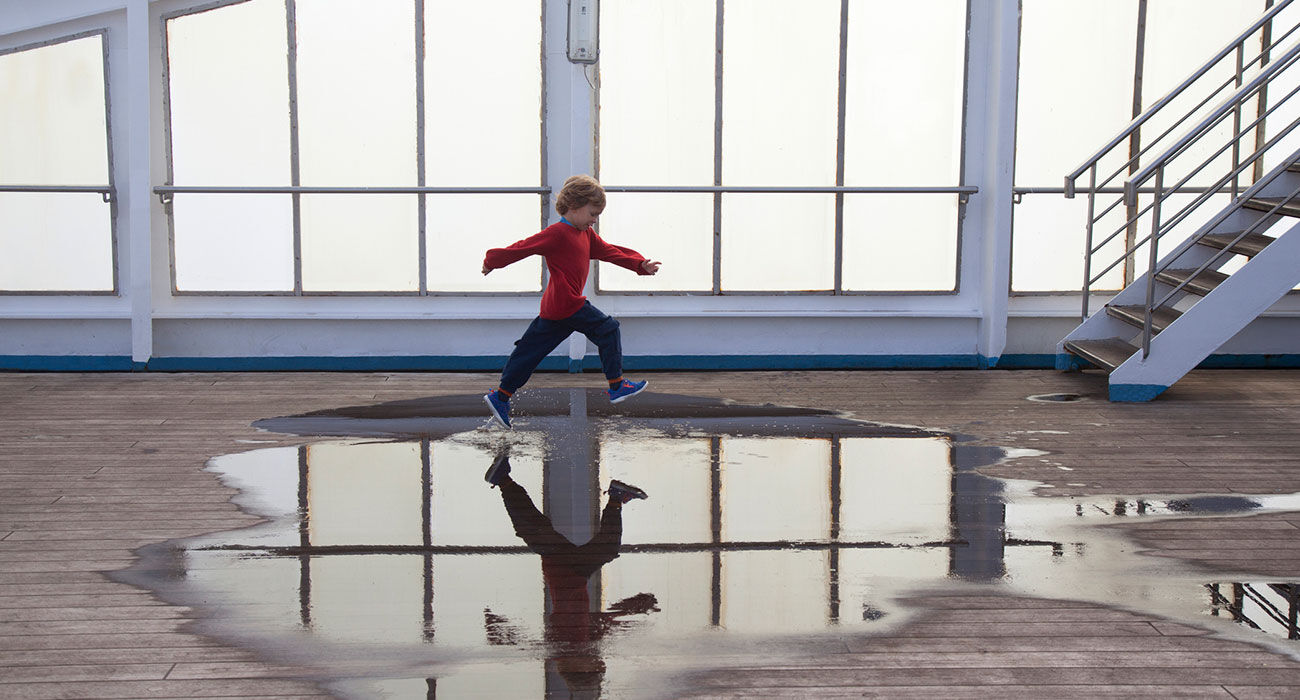‘My Indonesian husband ensures a calm balance in the house’
“Twenty years ago I did an internship in Indonesia for my education in pedagogy. From day one I ate every night with my boy next door Irwan. At first I didn’t realize how in love I was. Or maybe I didn’t want to see it. A distant love, moreover half a head shorter than me, that’s not handy, is it? But love could not be rationalized away. I hated having to go home after nine months.
Article continues after the ad
After a few months of heartbreak, a friend wrote a letter to All you need is love, which brought Irwan to the Netherlands for three weeks. After that there was no going back, we arranged that Irwan could complete his architecture studies at the TU in Delft and went to live together in a small, draughty apartment in The Hague, quite a contrast to the sun-drenched Jogjakarta. Yet Irwan felt right at home: as a Chinese-Indonesian boy he was used to being discriminated against in his own country, here he was treated like everyone else.
Indonesian influence
There was no cultural clash in our household. At the most I was surprised when Irwan, at his mother’s request, placed a few garlic cloves in the crib of our newborn son to drive away ‘the evil spirits’. But I respected that conviction, it couldn’t hurt and I also embraced his Indonesian influence.
Because Novan cried a lot, we liked to let him sleep in our room. The consultation bureau disagreed. Certainly at that time they were still very leading: as new parents you had to stick to their guidelines. While in Indonesia you carry a newborn baby close to you all day long in a slendang, a child in the Netherlands has to become independent as soon as possible. Why does a baby have to sleep alone, Irwan wondered, we don’t do that either, do we? I found that insight an enrichment. Our two sons slept longer than ‘normal’ in our room. Without Irwan I would never have dared to turn against the terror of the health clinic, then I would have dutifully followed the steps.
Read also
Mom is sister, dad is like this: these parents are very different >
Own peace and rhythm
Because of his different perspective, I started looking for what I thought was good for our children. Being content with your situation is baked into Irwan’s culture. He does not let himself be fooled, which ensures a calm balance in the house. I see how many parents work themselves overtime, with busy jobs and a killer schedule for the kids. Children of barely four years old who are already being dragged from hockey and judo to drum lessons and piano. We didn’t want that. We wanted our children to discover their own peace and rhythm, even teach them to be bored, so we limited the number of extracurricular activities.
It feels good, although I occasionally get a panic attack: am I not missing them? With a Dutch man next to me, I would have let myself be sucked into it anyway. But because Irwan doesn’t feel that external pressure at all, I can also resist: we do what suits us. Irwan’s natural calm makes me less prone to overwork.
Liquid
Irwan had to get used to the Dutch tendency to discuss everything excessively with children; in Indonesia, a child never argues with adults. Shouldn’t we be stricter, we were the parents, weren’t we? he wondered. We talked about that for hours. We both now think we have the best of both worlds: we decide, but we do give the boys text and explanation so that they understand why we make that choice.
It’s nice that Irwan is very ‘liquid’; he looks at what suits him well, regardless of the culture. In some areas he is even too well established for my taste: Irwan can buy groceries in a very Dutch, tailor-made way. While I am so charmed by the Indonesian style: when visitors come, you provide plenty of food and you cook for everyone. At noon we eat noodles or nasi goreng, which the children really enjoy. I think the Indonesian food culture is perhaps the most beautiful enrichment; food represents conviviality.”
This article can be found in Kek Mama 07-2021.



